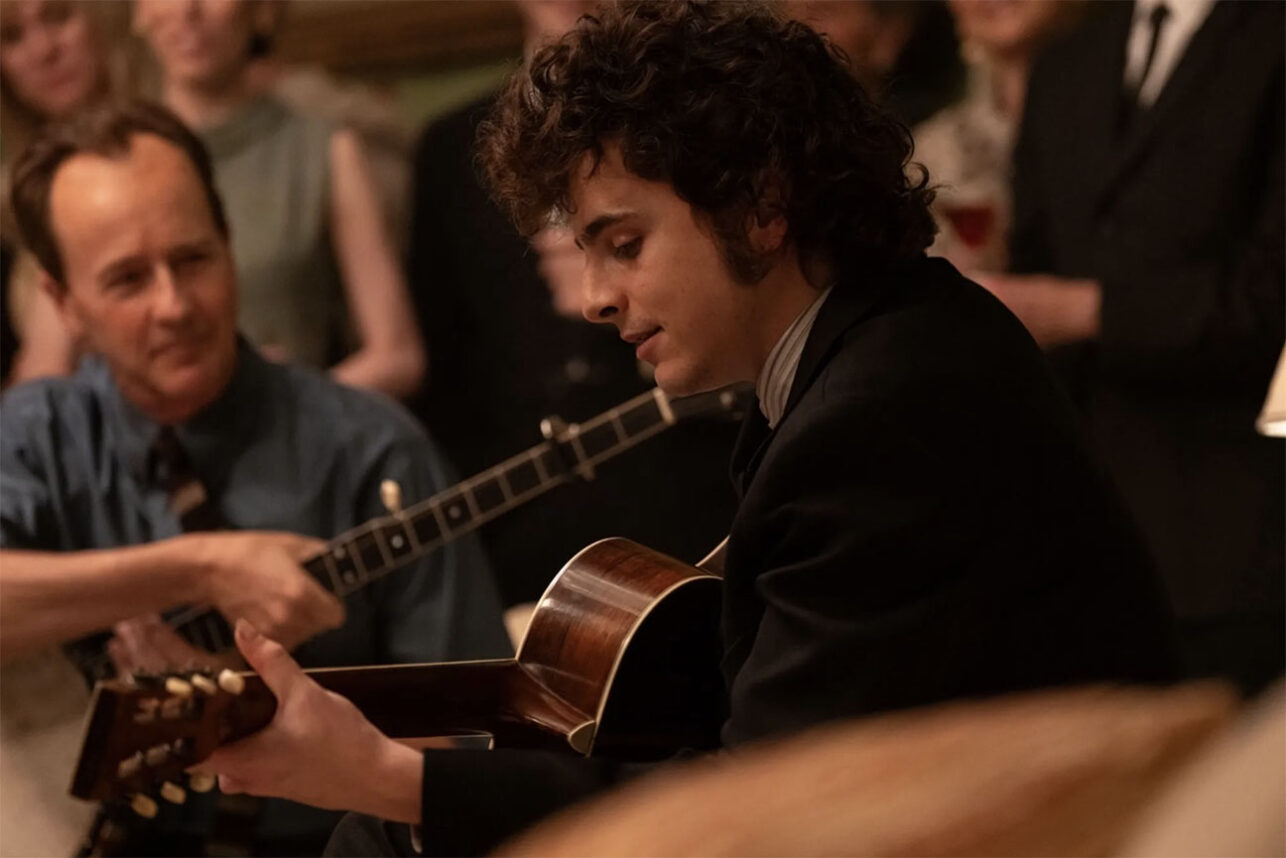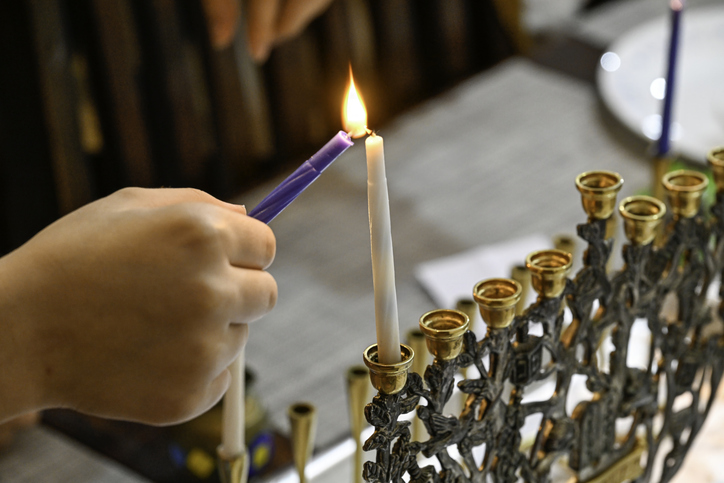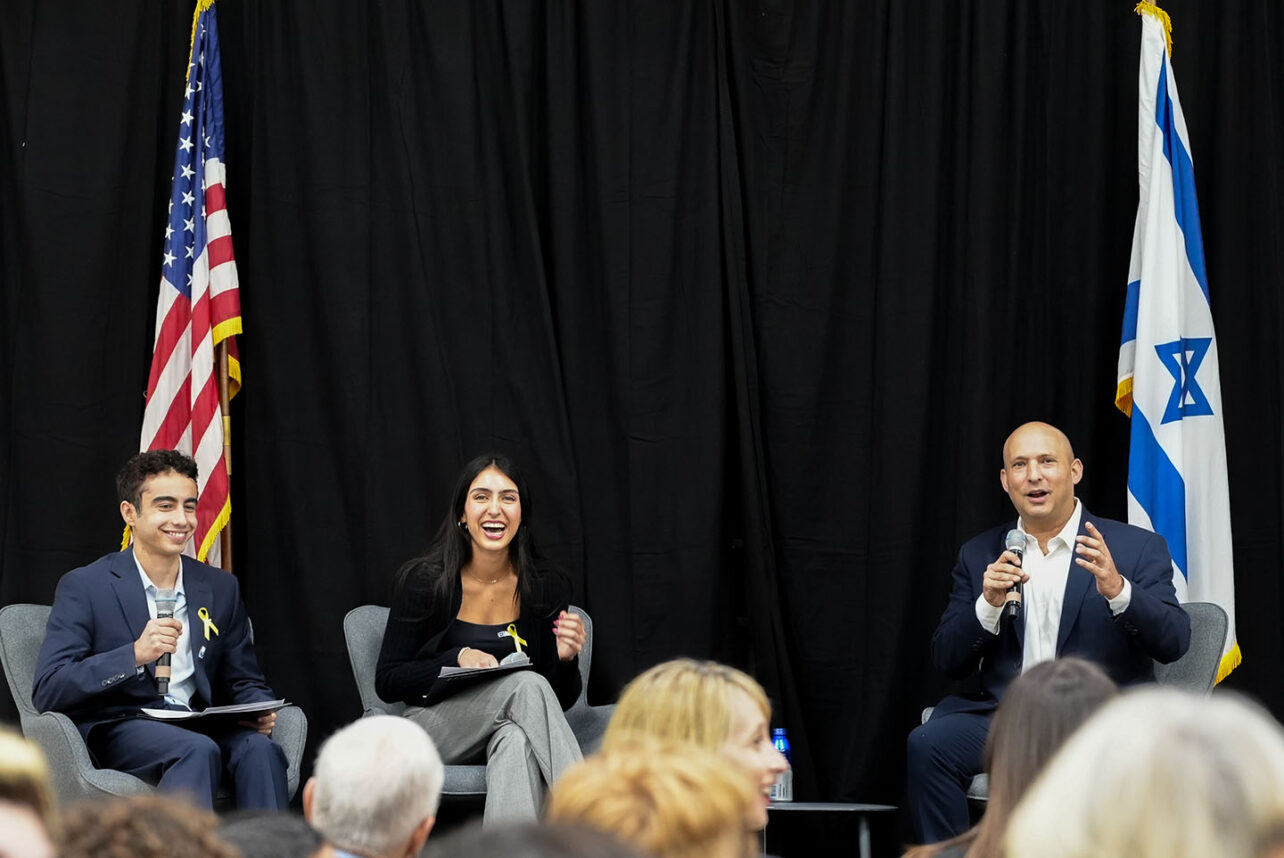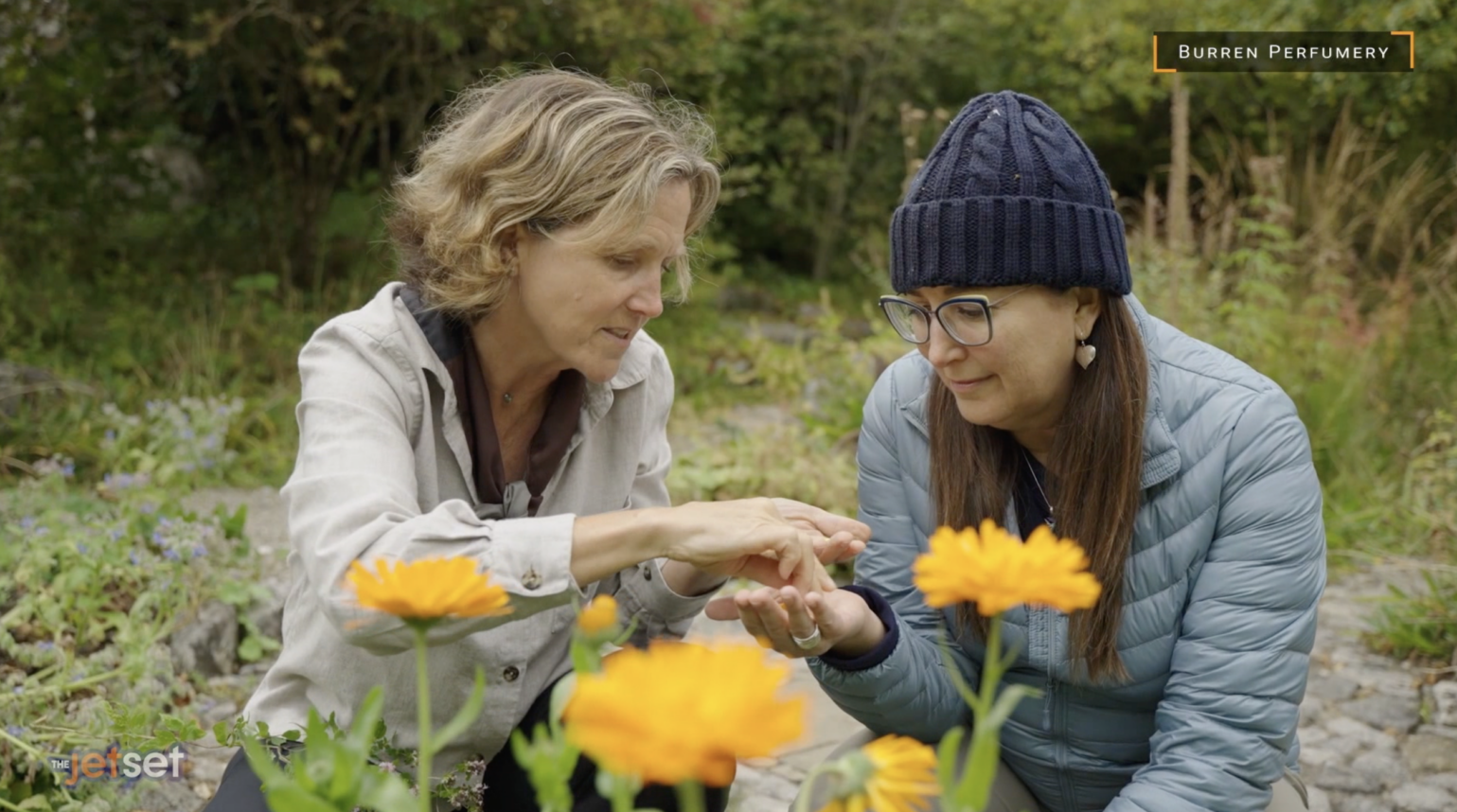At an airy dance studio in the San Fernando Valley, couples dressed in black moodily tango across the floor, stopping in frustration now and then. Hadas Fisher stands out: She’s wearing a bright coral dress, dangly gold earrings and a brilliant smile. Her dance partner, an elderly gentleman, is 3 inches shorter than she is. Fisher guides him through the cha-cha with a gentle patience.
“Turn me, and keep this up,” she says. Fisher adjusts her partner’s arms, demonstrating how to hold them perpendicular to his body. They do a swift turn toward the mirror, but the partner botches a leg movement. Fisher corrects him with a sweet but scolding grin that suggests they had discussed this before.
Fisher, like many others in the entertainment field, came to Los Angeles with a drive to succeed in the big leagues, but far fewer have a level of kindness that equals that drive. Her smile stayed put long after the lesson finished, as she humbly described her list of accomplishments: In January, she won Israel’s “Dancing With the Stars” competition with Israeli actor and comedian Shlomi Koriat; she received the best instructor award out of 300 Arthur Murray studios in 2007; she placed first in the national American Rhythm Competitions in 2006 and 2008; and she has a solid roster of 15 students, many of whom have been with her for many years.
Fisher, 29, was born in Haifa. She danced ballet and jazz starting at age 5 but never considered it a career possibility. Instead, she did her mandatory service in the Israel Defense Forces, then studied business management at the College of Management in Rishon LeZion. But throughout college, she found she couldn’t get dancing off her mind. So she joined two dance groups — Arthur Murray and Bat-Dor — and in 2005, after completing her degree, she left Israel for Los Angeles to compete professionally.
Hadas Fisher on Israel’s “Dancing with the Stars” – story continues after the jump. More videos below.

Photo by Courtney Raney
Professional dancers compete — on local, national and international circuits — for several reasons, other than the obvious monetary incentive: The competitions add structure to an often nebulous career path; the pressure pushes dancers to work hard and constantly improve; and winning — especially in the States — helps get them noticed.
Career benefits aside, Fisher says the move to Los Angeles was one of the most difficult things she’s ever done. She has a tight-knit family — three younger siblings are still in Israel — but leaving has created a pressure that she uses to her advantage: “If I sacrificed and left everybody behind in Israel, I have to be the best,” she says.
Fisher has pursued excellence in two areas: competing and teaching. She started out as a full-time instructor at the prestigious Arthur Murray studios and competed on her own time. In the process, she built up a following of committed students. “I can’t take money from people if they don’t think I deserve it,” Fisher says. “This is my merchandise, my private lessons.”
Not all professional dancers are natural teachers, but Fisher is. “It’s who I am. I like to give information to people and see how it makes them react.”
The student from earlier that day has been particularly responsive to Fisher’s teaching: “Every time he learns something and is able to do it, his mind is going crazy,” she said. “He’s becoming like a baby. He’s 65 years old, and when he comes here, it’s like he’s 15.”
She prides herself on maintaining a balance in her approach to students — she’s tough but kind at the same time. Her affinity for it may be one of the reasons she won “Rokdim Im Kochavim” this past January — and had such a good time doing it. She and partner Koriat prepared for the show for two months before starting to tape. Being on a reality show required a whole new skill set because of the dramatic plotlines among the characters, and teaching the dances week to week was tough at times.
But Koriat kept things lighthearted. “Since he’s a comedian, he was making me laugh the whole time.”
So, is Fisher a celebrity on the streets of Israel today? She giggles: “I don’t know. I’m not a celebrity type of person. But yes, I guess.”
Fisher says she’ll always teach, but her big win whet her appetite for competition, and she doesn’t have much time to fulfill that drive — most dancers retire at age 35, 40 at the latest. She is considering going back to Israel for the next season of “Rokdim Im Kochavim.” She is hoping it may lead to a stint on the U.S. version of “Dancing With the Stars.” “I think that if I really, really want to be on ‘DWTS,’ I can do it.”
But Fisher’s strong family ties may be catching up with her ambition right as she enters the final stretch of professional dancing. Her American boyfriend, whose mother is Israeli, might be popping the question in the near future. And, Fisher wants children — something that is clearly incongruent with a dancer’s demands.
Where to build that family home also remains a dilemma. Despite being part of a solid community here, she has never accepted the idea that she’ll never return to Israel. “My soul is still there,” she says. “I think it’s something only Israelis can feel … you’re always drawn to a certain place on the map.”
The dancing star has some tough decisions ahead of her. Her intense drive and equally compassionate personality have carried her this far in life; it seems those qualities will also help her glide gracefully through those challenges.






















